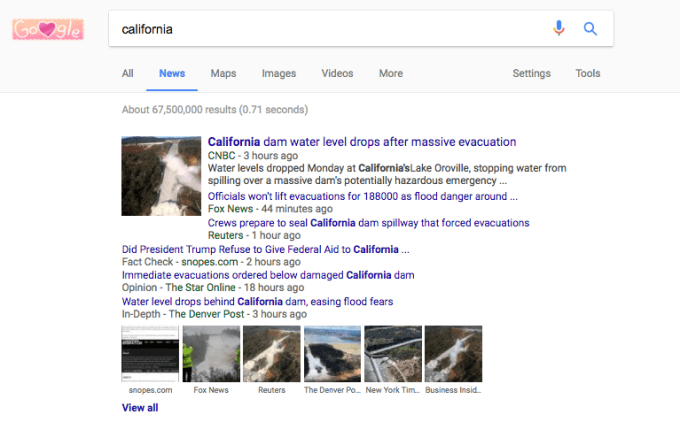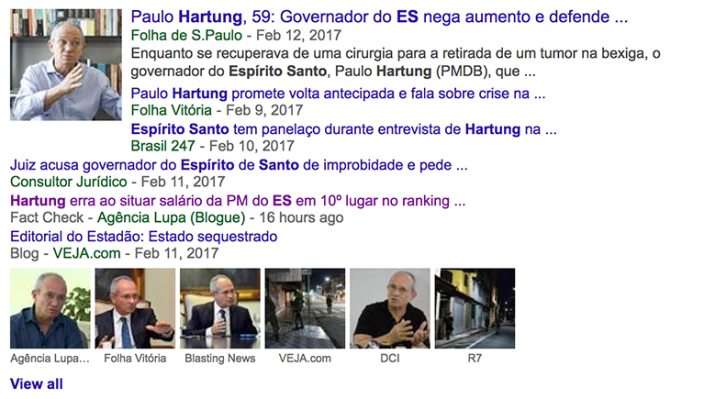In October, Google announced it would begin highlighting fact-checked resources in its Google News vertical, allowing readers to more easily find links to reputable sources of factual information related to major stories. Today, Google says it’s expanding this feature to new markets, including Brazil, Mexico and Argentina.
The company had previously launched fact checks outside the U.S., with the addition of France and Germany in November of last year.
The fact checks will be available on Google News, in the expanded story box, as well as in the Google News & Weather iOS and Android applications, says Google. In addition, the fact check tag will be visible in the new countries in “news mode” in Google Search. That means you’ll see the fact checked articles appear in the main groupings when you search for a given news topic, then click over to the News tab.

The articles will be identified with the label “fact check,” which appears beneath the URL. This is one of several ways Google labels its links in Google News – the company has historically tagged articles as “In-Depth” or “Opinion,” when warranted, as well.
Fact checking sources of information on the web has been a topic of heightened debate in the wake of U.S. elections where partisan websites and those misreporting (or outright lying in order to turn a profit) were believed to have influenced the vote. The rallying cry of “fake news” has since been used by those on both sides of the table, but most egregiously by President Trump as a means to discredit news reports and media organizations he doesn’t like.
Fact check resources, however, are not fake news. Instead, they contain the verifiable, ethically sourced facts that the news stories reference, without the accompanying spin.
The industry has grown substantially in recent years. Google notes that there are now over 120 organizations worldwide that are focused on this issue.
Google has gotten directly involved itself, as has Facebook, which finally admitted that – well, maybe it was a media company after all.
Earlier this month, Google announced Crosscheck, a project involving roughly 20 French newsrooms and the First Draft Coalition, which aimed to help fact check news stories during the French elections. Google is also supporting 10 other projects across Europe focused on fact checking through the Digital Initiative Fund.
Publishers who want their work labeled with the Fact Check tag can use the open ClaimReview schema from schema.org in their stories. To use this markup, publishers have to meet a certain set of criteria common to all fact checking resources. Google says it will remove sites from Google News or ignore the markup when the publisher doesn’t follow the prescribed guidelines.
